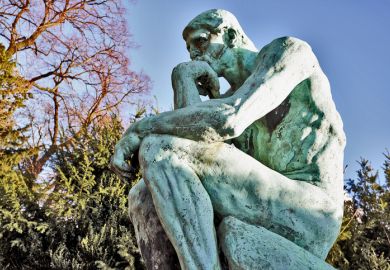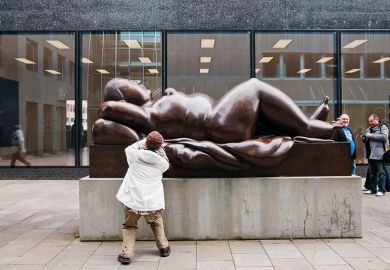Ah happiness", said Basil Fawlty, "I remember that." Most of us think we can, and we are not likely to envy people who cannot. We relish our regular shots of joy and delight; we value a frequent tincture of bliss and euphoria; and we look forward to a light dash of rapture or ecstasy on the top.
If we cannot get the real thing, we fear we may have to put up with the brief highs of happiness's louche half-sibling, pleasure, or the longeurs of its boring cousin, contentment.
Yet happiness is notoriously elusive, as we find when the question of whether we are happy is sprung upon us. It does not always lie in wealth, or power, or justice, or the satisfaction of desires and appetites, for all of these can arrive without it, and it without them. It is hard or impossible to measure and compare, either in different people or in one person at different times.
As a result, this learned history of Western reflection on happiness is one of constant bewilderment. The problem seems to have started with Solon's stark injunction to call no man happy until he is dead.
Plato then shoves his oar in, as the great stickler for harmony. The leading cause of unhappiness is conflict between desires, and the great cause of that conflict are the unruly appetites and the unruly spirit of men, who cannot learn to subordinate everything to the benign and harmonious rule of reason, happily locked onto the Good.
Aristotle shrewdly pointed out that a city without conflict was not really a city at all, and similarly a person without at least the potential for conflict within himself is hardly much of a person. But Aristotle's own account of happiness, in terms of an agent acting in accordance with human excellence, is scarcely more compelling, since it seems obvious that agents can do that without being happy.
Adepts of Aristotle's prized excellence, the contemplative life, are often a miserable lot. Wittgenstein, for instance, seems to have lived his productive early years in a state of almost suicidal self-loathing.
Stoics and Epicureans, empiricists and behaviourists here follow each other in a lugubrious line of failures. Nicholas White refuses to be cheered, even by Hobbes and Hume, returning to those irreconcilable desires, but also in the intertwined place of fact and value in our assessments of happiness.
The idea is that this fractures the very concept of happiness by forcing us to confront the Chekhovian thought that no good person could be happy except at the cost of awful insensibility.
Hence our nostalgia for childhood, romantically invested with innocence or ignorance. It is no accident that most angels are cardboard (the only exception being Lucifer, who consequently lost the job) and the really unhappy implication emerges that the only paradise we can readily imagine is a fool's paradise.
This is a good textbook for wet Monday mornings, but bring your own endorphins.
Simon Blackburn is professor of philosophy, Cambridge University.
A Brief History of Happiness. First Edition
Author - Nicholas White
Publisher - Blackwell
Pages - 194
Price - £45.00 and £9.99
ISBN - 1 4051 1519 X and 1520 3
Register to continue
Why register?
- Registration is free and only takes a moment
- Once registered, you can read 3 articles a month
- Sign up for our newsletter
Subscribe
Or subscribe for unlimited access to:
- Unlimited access to news, views, insights & reviews
- Digital editions
- Digital access to THE’s university and college rankings analysis
Already registered or a current subscriber? Login



